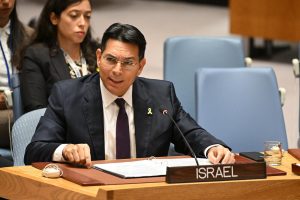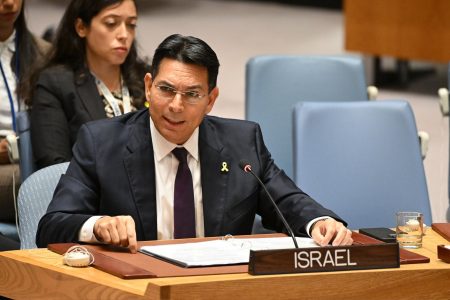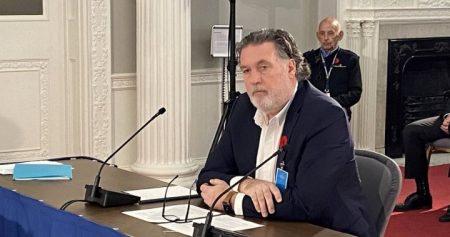The shocking assassination of Brian Thompson, CEO of insurance giant UnitedHealthcare, outside a Midtown Manhattan Hilton hotel has taken a dramatic turn with the apprehension of a person of interest, Luigi Mangione. Mangione, a 26-year-old former Ivy League student with a background in tech and a history of espousing anti-capitalist and anti-healthcare industry sentiments online, was taken into custody at a McDonald’s in Altoona, Pennsylvania. While charges have yet to be filed, the arrest follows an intense manhunt after Thompson’s cold-blooded execution. The emerging narrative paints a picture of a potentially disgruntled individual harboring deep-seated grievances against the healthcare system, with investigators uncovering a manifesto seemingly outlining these concerns among Mangione’s possessions.
The targeted nature of the attack is chilling. Thompson, who ascended to the role of CEO in 2021 after joining UnitedHealth in 2004, was shot multiple times in the back and leg by a silenced firearm. The assassin, captured in surveillance footage wearing a hood, meticulously planned the execution, fleeing the scene on foot after ensuring Thompson was down. The NYPD’s investigation uncovered a potentially coded message on the spent shell casings, hinting at a premeditated act driven by a specific motive. Adding another layer of complexity to the case, Thompson’s wife revealed that he had received threats prior to the killing, raising questions about whether the assassination was connected to personal or professional conflicts.
Mangione’s digital footprint provides a window into his ideological leanings. His online activity reveals a fascination with anti-capitalist ideologies and climate change activism, alongside a pronounced disdain for the healthcare industry. Disturbingly, his Goodreads account shows an affinity for quotes by Ted Kaczynski, the infamous “Unabomber,” whose anti-technology manifesto and deadly bombing campaign terrorized the nation for nearly two decades. One quote favored by Mangione captures Kaczynski’s cynical view of modern society’s reliance on antidepressants to mask societal ills rather than addressing their root causes. This apparent alignment with Kaczynski’s anti-establishment and anti-technology views raises concerns about the potential motivations behind Thompson’s murder.
The contrast between Mangione’s privileged upbringing and his radical views further complicates the narrative. A valedictorian of his 2016 graduating class at the prestigious Gilman School in Baltimore, an exclusive all-boys institution, Mangione showcased academic promise and a seemingly bright future. He expressed aspirations of pursuing a degree in artificial intelligence at the University of Pennsylvania, focusing on computer science and cognitive science. This juxtaposition of academic achievement and radical ideology paints a portrait of a complex individual grappling with potentially conflicting worldviews.
The investigation into Thompson’s murder continues, with authorities piecing together the evidence to establish a definitive link between Mangione and the crime. The discovery of the manifesto, alongside Mangione’s online activity, provides crucial clues into his potential motives. The coded message on the shell casings, along with the threats Thompson reportedly received, add further layers of intrigue to the case. The NYPD is working to determine whether Mangione acted alone or if others were involved in the plot.
The case raises broader questions about the potential dangers of unchecked radicalization, particularly in the context of online echo chambers. Mangione’s apparent embrace of anti-establishment and anti-healthcare sentiments, coupled with his affinity for the Unabomber’s writings, underscores the potential for extremist ideologies to take root and inspire violent acts. As investigators delve deeper into Mangione’s background and motivations, they hope to uncover the full story behind this shocking assassination and bring closure to Thompson’s family and colleagues. The tragic event serves as a stark reminder of the potential consequences of unchecked anger and the importance of addressing societal grievances through constructive dialogue rather than resorting to violence.










